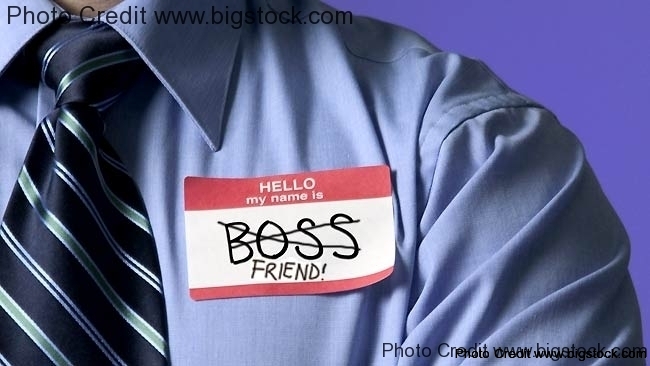
Being friends with your boss sounds like a natural thing to do. After all, many people – especially millennials – just starting out in the workforce spend more time with people at the office than with their families and friends. And since, according to many experts, there’s less separation between generations than ever before, befriending not just same-age colleagues but even often older bosses is becoming more common and easier to do.
If you’ve read and digested our tips about how to be a good co-worker, you will undoubtedly reach a crossroads where socializing outside of the office with the person who signs your paychecks is a real possibility. You’d be far from alone – 49% of workers in a recent survey considered their boss to be a friend. Should you take the plunge? Here are some pluses and minuses:
Why You SHOULD Be Friends With Your Boss
The friendship itself should be the primary benefit, of course. Much like a good man, a good friend is hard to find. If you enjoy your boss’ company, find you have common interests, and get along well, it may well be worth being friends despite some inherent awkwardness.
But let’s be honest, there may be career benefits as well. Being close to your boss can help your morale. It can also make communication in the workplace flow more easily. And, of course, you’re more likely to get access to inside information and plum assignments.
Why You SHOULDN’T Be Friends With Your Boss
There are a ton of potential drawbacks to being buddy-buddy with someone higher up in your office. When (not if, but when) your co-workers notice you laughing with your boss about your weekend trip to see the midnight screening of The Room, they’ll inevitably start whispering behind your back and will be on the lookout for any sign of favoritism. Their reactions may even move from quiet rumor-mongering into the realm of sabotage.
In addition, your newfound pal may give you a harder time than your officemates, in order to avoid being accused of bias towards you. Author Meredith Fuller points out, “A ‘friendship’ may hinder your career – your boss may worry about favoritism and err on the punitive side. You may not hear the constructive criticism you need to progress because your boss is uncomfortable about the role confusion.”
Facing criticism from a boss is hard enough, but adding a friendship into the mix can make hearing even necessary feedback tougher than normal to take. The potential for hurt feelings on either side of the conversation is very high.
And no matter how close you grow, always remain aware that this person is your boss. Your story about your wild night the prior evening may play well with a pal, but puts your boss (who wonders why you’re late and a little sluggish) in a difficult position – one that will likely come back to hurt you.
So What Should I Do?
As with most issues in the workplace (and in life), there are no easy answers. Becoming friends with your boss has many potential drawbacks. However, many of them can be at least mitigated, if not avoided altogether, if you are careful to be aware of how your friendship appears to others and take pains not to flaunt it. Ultimately, you’ll have to decide for yourself whether the costs are worth the benefit of having a new pal.
